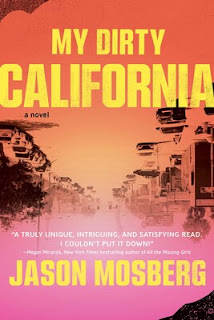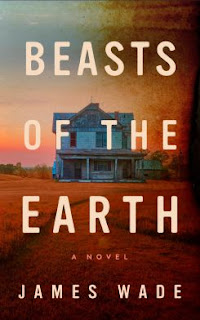 LAMBDA Literary Award finalist, she has received grants from the Sherwood Anderson Foundation, the Christopher Isherwood Foundation, the National Endowment for the Arts, and the Maryland State Arts Council. Five of her novels have been Indie Next Picks and her twelfth novel, Rust & Stardust, was a LibraryReads selection. Her novels have been translated into five languages. She lives with her family in San Diego, California, where she teaches creative writing, studies photography, and continues to write.
LAMBDA Literary Award finalist, she has received grants from the Sherwood Anderson Foundation, the Christopher Isherwood Foundation, the National Endowment for the Arts, and the Maryland State Arts Council. Five of her novels have been Indie Next Picks and her twelfth novel, Rust & Stardust, was a LibraryReads selection. Her novels have been translated into five languages. She lives with her family in San Diego, California, where she teaches creative writing, studies photography, and continues to write.
Greenwood applied the Page 69 Test to her new novel, Such a Pretty Girl, and reported the following:
From page 69:Visit T. Greenwood's website.Liliana throws her arm around Sasha’s shoulder. Their heads lean in together as they walk toward the elevators, and my throat feels swollen.The Page 69 Test works with Such a Pretty Girl! In this scene, an adult Ryan has returned to the artists’ residence (Westbeth) in the West Village where she grew up, and where many of her most wonderful, and most painful, memories reside.
Gilly and I trail behind. There were a few people milling about in the corridors, but no one I recognize. I feel suddenly, oddly, territorial. As if this is my home, and it has been invaded by strangers. I know it’s ridiculous. I abandoned Westbeth; it didn’t abandon me.
As the elevator ascends, I feel my stomach bottom out. I study the numbered buttons and resist the impulse to press 2 for Henri’s floor.
“Second floor!” Gilly used to call out in a deep, silly voice, pretending he was one of the fancy elevator operators in the luxury apartment buildings and hotels that we sometimes passed on the street. We used to pretend they were those guards with the fuzzy hats who guarded the Queen of England, and we’d always try to make them laugh. But now, Gilly just stands quietly as we keep rising. On the ninth floor, we get off, and I take a deep breath.
“It’s okay,” Gilly insists, as if he can simply manifest my wellbeing with his sheer will.
Much of the novel -- in both the past and present chapters -- takes place inside the walls of this labyrinthine former Bell Labs building. Westbeth is a real place, the first federally funded residence for artists, which opened in 1970. Ryan and her mother, an aspiring actress, move with friends into the building in 1977 when Fiona decides to pursue her dreams in NYC. In the 1970s, it was a bohemian mecca. As the city crumbled around them, this community was alive and vibrant. It is where the storied Village Halloween Parade began. It was (and is) the home to painters and sculptors, writers, and dancers, and musicians.
Henri is a photographer, a man who becomes like a father to Ryan, and she, his muse. In this scene, Henri is now gone, and the ache of his absence is acute.
Gilly is Ryan’s lifelong best friend, and the one person who can calm her when her crippling anxiety – something she has suffered from since childhood – kicks in.
This novel is, in many ways, about Ryan’s revisiting her childhood and examining it through a contemporary lens. But in this scene, like many in the novel, the past and present conflate.
The Page 69 Test: Rust and Stardust.
The Page 69 Test: Keeping Lucy.
Q&A with T. Greenwood.
--Marshal Zeringue
















